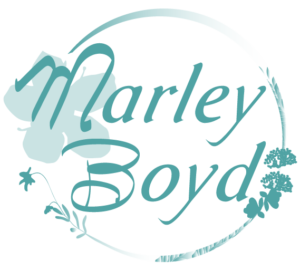The Making of an Artist
There was a time when I thought you could either sing or you couldn’t. I didn’t believe it was something a person could learn. No matter how hard I tried, I could only hit a few notes from some songs. But if the music was taken away, all my rhythm and pitch went out the window. It made me feel so sad that I wasn’t “born” a singer. I didn’t think I would ever feel the joy of being able to sing the way that I wanted to.
In my early 30’s, my two children got involved with an after-school drama program. Talking with one of the other parents, I learned he was a vocal instructor. I told him my regrets about not being able to sing. He surprised me when he asked if I had damaged my vocal cords. I hadn’t, so I asked him why.
He said that so long as I didn’t have vocal cord damage, then I was able to sing. Well, I can sing, I said. I’m just horrible at it. He said, you have to learn how to sing well. Most people do. At first, I was dumbfounded. Then, I was filled with a cautious hope. I signed up for singing lessons right away.
I’m not sure exactly what kept me going for the next ten years of lessons through four or five different vocal coaches. Based on recordings I’ve kept, I didn’t improve significantly. There was something inside holding me back. I didn’t make much progress.
About five years ago, I met my current vocal instructor Carol-Lynne Quinn. She said that even the professional recording artists she works with, are constantly working hard to expand and grow their vocal instrument . She told me that she thinks anyone can learn how to sing. So long as that’s what they really want, and they put in the time and effort needed to train. She said the voice is a muscle and muscles can be trained.
I told her how one of my instructors had told me that I had started too late with my vocal training. I was unlikely to expand my vocal range very far and certainly, would never hit a high C. Carol-Lynne asked me to suspend judgements about what was possible. She said, we’ll just do our lessons and see what happens. It wasn’t long before she had me singing high C in our warmups and then beyond that.
Ultimately, we don’t know what a person
can achieve given passion and practice.
Carol-Lynne told me that even vocal instructors can have misinformation about the voice. Ultimately, we don’t know what a person can achieve given passion and practice. Provided that we also give guidance on how to sing properly, so they don’t hurt their vocal cords. At some point, in our many hours of lessons, our conversation led us into a learning project where I would train until I could sing well enough to record a song.
Carol-Lynne then encouraged me to go another step further. One day, I showed up to a lesson with a third verse I wrote for Sting’s song The Empty Chair. She asked me how I had come up with the verse. I told her that I counted the syllables of the words in the other verses and then just followed the rhyming pattern. “Cool!” she said. You’ve got it in you to be a lyricist. Why don’t you try writing your own song?
She sat down at her keyboard and recorded a series of chords for me. I listened to her recording over and over. Suddenly, the chorus for Step by Step popped into my mind as if I had already heard it. That was the first song I wrote. Eleven more have followed.
Fifteen years and many thousands of hours of practice later, I am starting to feel the music flow. I not only learned how to sing, but I’m also now a recording artist and a lyricist. Recently, I have started experimenting with creating my own melodies. This is a whole new level of challenge. Though, I feel optimistic.
I keep thinking how much work it has taken to get to this stage of singing. I think that the vast majority of musicians and other artists can tell you the same story. The love for their art is born in. The rest has been untold hours of practice and encouragement from a trusted and knowledgeable coach who can bring out the best in us. Thank you to Carol-Lynne Quinn and all the other wonderful coaches who help make the music happen.
Marley Boyd



